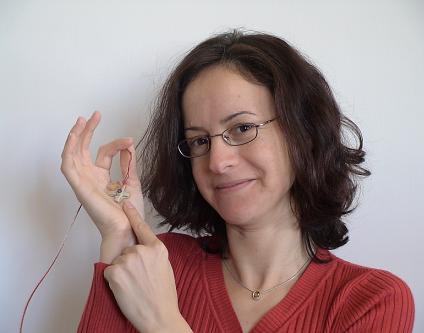The company is developing an innovative device for respiratory monitoring, especially in premature babies

"We monitor the mechanics of breathing directly," explains the company's director, Dr. Carmit Levy, who completed a direct doctorate in biomedical engineering at the Technion. "We put sensors on both sides of the thorax and abdomen of the ventilated premature baby and thus can monitor asymmetry between the two lungs and the development of a mechanical disturbance in visual ventilation. The sensors are attached to the body from the outside and there is no invasive intervention."
The equipment currently available in the intensive care units does not perform such monitoring and sometimes precious time passes, between half an hour and six hours, from the moment a problem arises in the ventilation of the vision until the medical team locates it. The detection is usually done when the baby already shows signs of distress and there is a danger of irreversible damage to vital organs. The systems that are part of the breathing machines that exist today, or systems that check the level of oxygenation in the blood, heart rate and blood pressure - do not directly monitor the mechanics of the chest and do not immediately report the formation of a problem, as the Pneumadicar system does. Early detection of a respiratory problem, such as an accumulation of air between the vision and the chest wall (pneumothorax), partial obstruction of the airways by secretions, or one lung breathing - will prevent the development of possible complications in vision and irreversible brain damage.
In the US alone, more than 240 babies are ventilated each year. The innovative system is also good for children and adults. The costs of treatment in intensive care units for premature infants are estimated at more than 15 billion dollars a year, and together with the care of children and adults, the costs reach more than 35 billion dollars. The device of Pneumadicar has, therefore, also a far-reaching financial meaning. Any detection of a problem by the device will save many days of hospitalization (the cost of each day of hospitalization is estimated at two thousand dollars) and future costs of treating the disabled, as a result of respiratory failure when they were premature.
The founders of the company are Professor Amir Landsberg from the Faculty of Biomedical Engineering at the Technion and Dr. Dan Wiseman from the "Carmel" Hospital and the Rappaport Faculty of Medicine at the Technion. The final project was carried out by the students Hagi Weisbrod and Nitai Hanani and the engineer Anna Feingersh, a graduate of the faculty who is employed by the company, performs and analyzes the clinical trials. The entrepreneurs expect the first device from Pneumadicar to be on the market in about a year.
